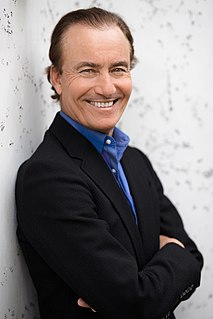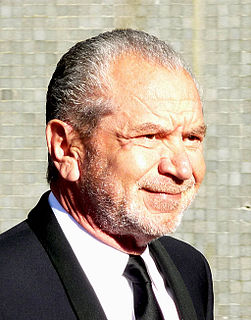A Quote by Gene Simmons
Nobody does just one thing. But the real difference between being an entrepreneur and everyone else in the world is the ability to monetize. I am an entrepreneur in the classic mold.
Related Quotes
You can't get anywhere without incredible passion, because if you're an entrepreneur, there's gonna be a lot of bumps in the road. A great artist has to do their art. There's nothing that can stop them from doing it. They just have to get it out there. It's the same thing for an entrepreneur. If you don't feel that way, then you're probably not really an entrepreneur.
I don't think it ever occurred to me that I wouldn't be an entrepreneur. My dad became a real estate developer, and that work is usually project-based. You attract investors for a project with a certain life cycle, and then you move on to the next thing. It's almost like being a serial entrepreneur, so I had that as an example.
You can be entrepreneurial even if you don’t want to be in business. You can be a social entrepreneur focused on the not-for-profit sector. You can be an agriculture entrepreneur if you want to change how people think about farming. You can be a policy entrepreneur if you want to go into government. The idea of an entrepreneur is really thinking out of the box and taking risks and stepping up to major challenges.
The most important job of the entrepreneur begins before there is a business or employees. The job of an entrepreneur is to design a business that can grow, employ many people, add value to its customers, be a responsible corporate citizen, bring prosperity to all those that work on the business, be charitable, and eventually no longer need the entrepreneur. Before there is a business, a successful entrepreneur is designing this type of business in his or her mind's eye. According my rich dad, this is the job of a true entrepreneur.
Entrepreneurs are all a little crazy. There is a fine line between an entrepreneur and a crazy person. Crazy people see and feel things that others don't. An entrepreneur's dream is often a kind of madness, and it is almost as isolating. What differentiates the entrepreneur from the crazy person is that the former gets other people to believe in his vision.
"Why is the creative entrepreneur the riskiest type to be?" I asked. "Because being creative means you are often a pioneer. It is easy to copy a successful and proven product. It is also less risky. If you learn to innovate, create, or invent your way to success, you are an entrepreneur creating new value rather than an entrepreneur who wins by copying."

































